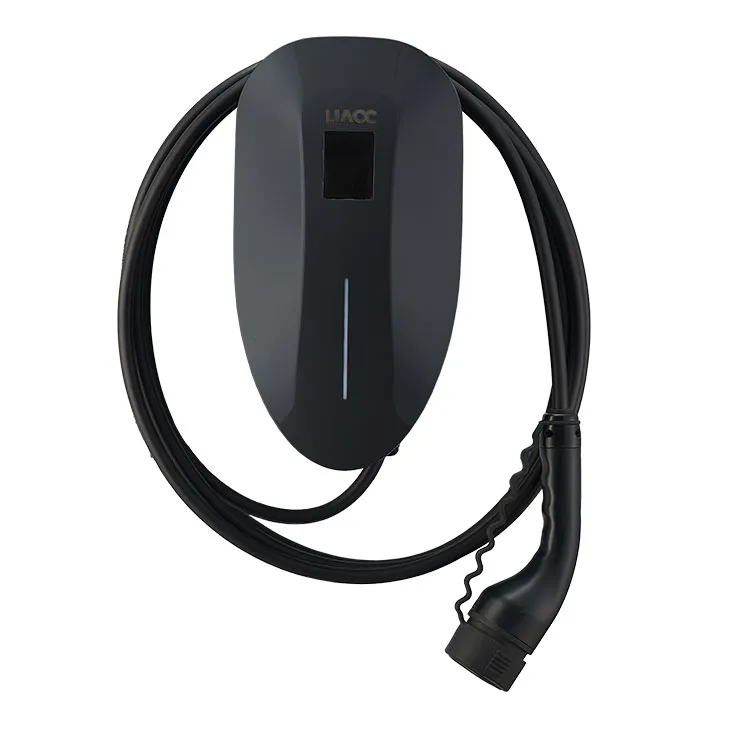AC EV Chargers: Powering the Future of Electric Vehicles
2024-08-16
As the world shifts towards more sustainable transportation solutions, electric vehicles (EVs) are at the forefront of this transformation. One crucial component in the EV ecosystem is the AC EV charger, which plays a significant role in ensuring that electric vehicles remain charged and ready for use. In this blog, we’ll explore what AC EV chargers are, how they work, their benefits, and what to consider when choosing one for your home or business.
1. What is an AC EV Charger?
An AC EV charger, or Alternating Current Electric Vehicle charger, is a device that supplies electrical power to an electric vehicle using alternating current. AC chargers are the most common type of EV chargers and are typically used for residential and public charging stations. They convert the electrical power from the grid into a form that the vehicle’s onboard charger can use to charge its battery.
2. How Does an AC EV Charger Work?
AC EV chargers operate by providing power through an electrical outlet to the vehicle’s onboard charging system. Here’s a step-by-step breakdown of how they work:
- Power Supply: The AC charger draws power from a standard electrical outlet or dedicated circuit. The power supplied is typically 120V or 240V, depending on the charger's specifications and the electrical system in place.
- Conversion Process: The charger provides alternating current (AC) to the vehicle’s onboard charger, which is responsible for converting AC power into direct current (DC). The DC power is then used to charge the vehicle’s battery.
- Charging Speed: The charging speed of an AC EV charger depends on the power output of the charger and the capacity of the vehicle’s onboard charger. Generally, higher voltage chargers provide faster charging rates. Common levels include Level 1 (120V) and Level 2 (240V) chargers.
3. Benefits of Using AC EV Chargers
AC EV chargers offer several advantages for both homeowners and businesses:
- Cost-Effective: AC chargers are generally more affordable than DC fast chargers, making them a cost-effective option for home and public charging installations.
- Convenient: For residential users, an AC charger allows for overnight charging at home, ensuring that your vehicle is ready each morning. For businesses, AC chargers can provide a reliable charging solution for employees and customers.
- Compatibility: AC chargers are compatible with a wide range of electric vehicles, as most EVs come equipped with onboard chargers that can handle AC power.
- Simple Installation: Installing an AC EV charger is often simpler and less expensive compared to DC fast chargers. Many residential installations only require a dedicated circuit and proper electrical connections.
- Flexibility: AC chargers can be installed in various locations, including home garages, parking lots, and public charging stations. This flexibility helps accommodate different charging needs.
4. Types of AC EV Chargers
There are different types of AC EV chargers, each suited to various applications:
- Level 1 Chargers: These chargers use a standard 120V electrical outlet and are typically used for home charging. They provide a slower charging rate but are sufficient for users with low daily mileage.
- Level 2 Chargers: Level 2 chargers use a 240V outlet, similar to those used for large appliances. They offer faster charging rates compared to Level 1 chargers and are commonly used in both residential and commercial settings.
- Portable Chargers: Some AC EV chargers are portable, allowing users to charge their vehicles from various locations. These chargers are often used as a backup option or for travel purposes.
- Wall-Mounted Chargers: Wall-mounted AC chargers are designed to be installed on walls or posts. They are a popular choice for home installations and offer a sleek and convenient charging solution.
- Smart Chargers: Smart AC chargers come equipped with advanced features, such as Wi-Fi connectivity, mobile app integration, and energy monitoring. These features allow users to track charging progress, schedule charging times, and optimize energy usage.
5. Choosing the Right AC EV Charger
When selecting an AC EV charger, consider the following factors:
- Power Requirements: Determine the power requirements of your electric vehicle and choose a charger that meets those needs. For faster charging, opt for a Level 2 charger with higher amperage.
- Installation Location: Consider where you plan to install the charger. Ensure that there is adequate space and access to a suitable electrical outlet or circuit.
- Compatibility: Ensure that the charger is compatible with your electric vehicle’s charging port and meets industry standards for safety and performance.
- Features: Evaluate the features of the charger, such as smart capabilities, ease of use, and any additional functionalities that may enhance your charging experience.
- Cost: Compare the cost of different chargers and installation options. Factor in both the initial investment and any ongoing operational costs.
6. Installation and Maintenance
Proper installation and maintenance are crucial for the safe and efficient operation of an AC EV charger:
- Professional Installation: For optimal performance and safety, have your AC EV charger installed by a qualified electrician. They can ensure that the charger is correctly connected to the electrical system and meets all local code requirements.
- Regular Maintenance: Periodically inspect the charger and its connections for any signs of wear or damage. Keep the charger clean and ensure that it remains free from obstructions or debris.
- Firmware Updates: If you have a smart charger, check for firmware updates and install them as needed to ensure that the charger continues to perform optimally and includes the latest features.
In conclusion, AC EV chargers are a practical and essential component of the electric vehicle ecosystem. They provide a cost-effective, convenient, and versatile solution for charging electric vehicles, whether at home or in public settings. By understanding the different types of chargers, their benefits, and how to choose and maintain them, you can make an informed decision and enjoy the advantages of driving an electric vehicle. Embrace the future of transportation with a reliable AC EV charger and experience the benefits of clean, efficient, and sustainable driving.



